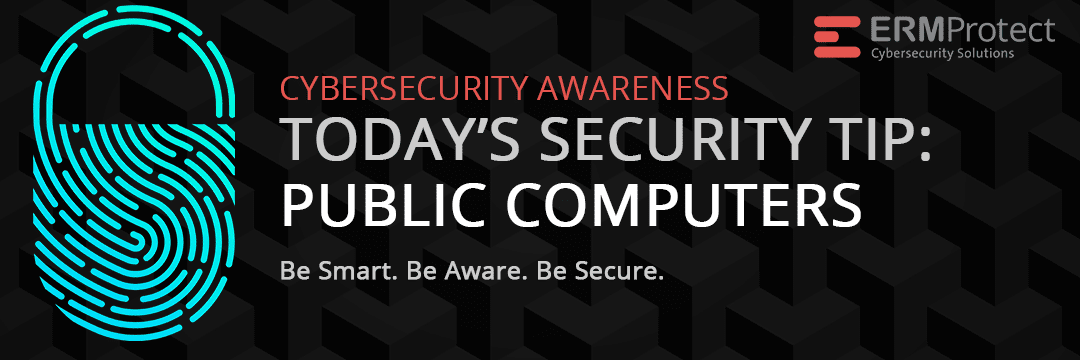Cyber Tip of the Day - Public Computers - Cybersecurity Awareness Training
Public computers that offer you Internet access are high-risk spaces where your personal and sensitive information can and will get stolen.
Here are some tips to protect yourself:
- Disable “Autocomplete” and “Save Password” features in the browser before you start browsing.
- Consider using private or incognito mode in browsers that makes sure nothing is stored on the public machine.
- Do not use toolbars and don’t click on ads that appear on the sites you visit.
- Be wary of anyone trying to snoop over your shoulder. Avoid entering sensitive information such as credit card numbers or financial details while using public computers.
- Don’t leave your machine unattended while you’re using it.
- Clear the temporary internet files and browsing history when you finish using the public computer.
- Remember to logout of websites when you’re done working. Don’t just close the browser or type another site address in the URL.
- If possible, avoid using public computers such as those in hotel lobbies or public libraries altogether. You never know who’s been using them and what’s on them.
Be Smart. Be Aware. Be Secure. ERMProtect.

Get a curated briefing of the week's biggest cyber news every Friday.

Turn your employees into a human firewall with our innovative Security Awareness Training.
Our e-learning modules take the boring out of security training.
Intelligence and Insights

How to Achieve PCI Compliance in the Cloud as Security Controls Evolve
The integration of cloud services with PCI DSS compliance is particularly crucial for enterprises that handle sensitive payment card information …

What Are the 5 Stages of a Digital Forensics Investigation?
In this article, we delve deeply into the five stages of a digital forensics investigation and provide tips on how to select the right digital forensics company …

A Comprehensive Guide to Penetration Testing – Types, Methods, Benefits and Best Practices
This penetration testing guide explains the different types of penetration testing, their benefits, and their purpose …

